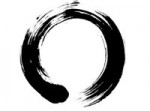A re-post from four years ago that seems appropriate today. So Happy Pi day and a toast to Hakudo Maru, the Japanese celestial shipbuilder.
 Some call today Pi day, as the first three digits of the date (3.14) are the first three digits of the constant pi used to calculate the circumference and area of a circle. Which makes it a good day to raise a glass to toast Hakudo Maru.
Some call today Pi day, as the first three digits of the date (3.14) are the first three digits of the constant pi used to calculate the circumference and area of a circle. Which makes it a good day to raise a glass to toast Hakudo Maru.
By Japanese naming convention, merchant and private ship names end in the word “Maru,” meaning circle. There are several explanations for this convention, including that ships were thought of as floating castles and maru represents the defensive “circles” that protected the castle. Another explanation is that the suffix honors, Hakudo Maru, the celestial being in Japanese mythology who is said to have come to Earth 5000 years ago and taught humans how to build ships. A toast to Hokudo Maru.
My favorite explanation is that maru represents the hope that the ship leaves port, travels the world, and returns safely to home port, representing the complete circle of a successful voyage.

I speak under correction, but I believe that Japanese uses only a few thousand kanji, ideographs mainly derived from Chinese. For this reason, each character often has multiple, unrelated meanings. The reader just has to figure out which meaning is intended from the context; some combinations of 2-3 kanji together have specific meanings.
I have heard that maru can mean young boy, ball, or ship. There might not be any reason why the character has these meanings (although I would guess that the corresponding Chinese character probably is one of these).
I think “sen” also means ship in Japanese, as in Kawasaki Kisen Kaisha (Kawasaki Steamship Company, K-Line).
From what I understand, as a non-Japanese speaker, is that “maru” (丸) means circle and can also mean zero. If it means ball, that is not surprising either. Each is some representation of a circle. Apparently, as an adjective, it can mean completeness, which also makes sense metaphorically.
I am familiar with maru as a ship name suffix but never as the word for ship.
I asked a native Japanese speaker about maru; here’s what she said:
~~Maru means circle, purity, perfection and suffix for ship names. In feudal days, it was commonly used by the “high class society” such as samurai and warlords son’s ending of their first names when they are young… meaning “purity and perfection”. (Ex:”Chiyo Maru, Take Maru, Yuki Maru, etc.) However, when the boys reach their puberty, their parents usually change the boys’ first names to something else which doesn’t include maru. (Ex: Daigoro, Takekazu, etc)
This is the common knowledge among the Japanese and I don’t have answer for why they use Maru for suffix for ship names.
The person who told me that it means young boy and ship was probably misled by the use of maru as a suffix for the names of boys and ships. He probably confused circle and ball as well. Perhaps maru is used in ship names for the same reason it was used with the names of young boys.
Interesting. Thanks.
I came across a reference that suggests that the use of maru for boy has a different origin from maru, representing a circle.
What is the meaning of the word maru in the names of Japanese boats?
The origin of the maru in the names of boys is said by some to have come from a Japanese word for excrement, maro, or from potty, o-maru, in an effort to ward off demons by giving the child an unpleasant name.